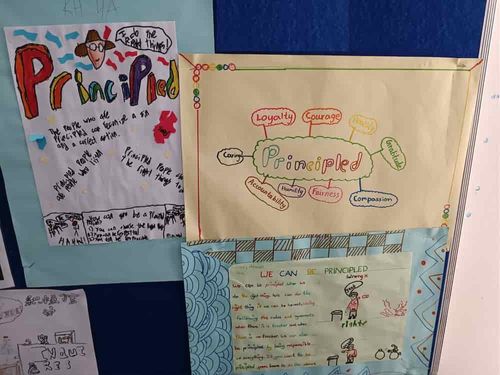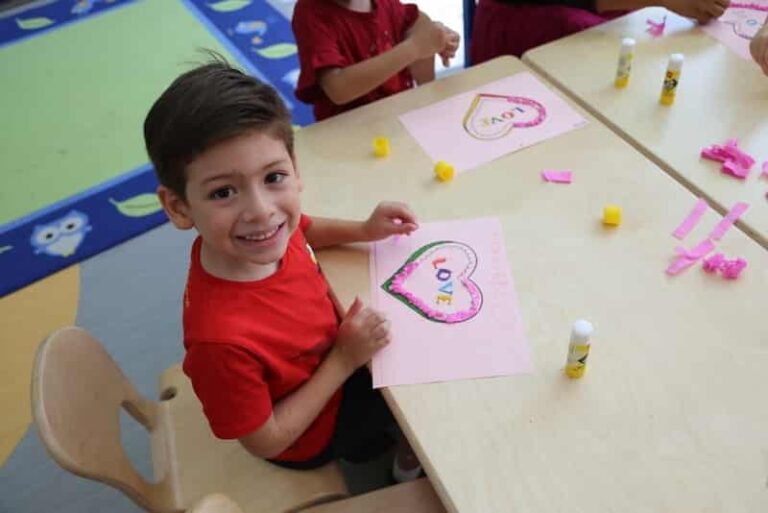To be principled, we must have integrity. We must be honest and fair. We must actively work to right wrongs when we see them occur. Principles play significant roles in what defines us and in who we are. Our principles determine the type of people we attract as friends and whether we’re loved and respected or feared and disliked.
Being Principled as Part of the IB Learner Profile
The International Baccalaureate defines a principled student as one who possesses a strong sense of fairness. It’s someone who respects the dignity and feelings of others, is honest and accountable, and accepts both responsibility for their decisions and the consequences that accompany them. In fact, being principled is part of the IB Learner Profile, along with other attributes such as being caring and open-minded.

On any given day, a principled student might:
- Refuse to help another student cheat on a test
- Stand up for someone who is being bullied
- Befriend a new student who seems lost or anxious
- Volunteer within their community
- Admit when they’ve made a mistake
- Accept responsibility for making a wrong decision
Adopting principles while in primary and secondary school helps children become moral adults. But it’s not always easy to stand on your principles. In fact, it’s often quite tricky. Many principled people in history have suffered great hardships because they refused to compromise their principles. People such as Malala Yousafzai, Raif Badawi, and Nelson Mandela are prime examples. All suffered physical injury, separation from their families, or imprisonment for standing up for their beliefs. As a result, the world as a whole became a better place to live, attend school, and speak freely.
How One World International School Encourages Principles

At OWIS, a leading international school in Singapore, we begin emphasising the importance of kindness, sharing, helping others and helping our communities in our IB Primary Years Programme. Our faculty models these traits in and out of the classroom, and they reward students who defend their principles, even the very earliest learners. Whether it comes in the form of a second-grade child sharing crayons with a classmate or a Secondary student modelling academic honesty in the classroom, acts such as these are acknowledged and recognised as part of being principled.
And while it’s challenging to create a course entitled “Principles”, it’s not at all difficult to work these expectations into recurring themes from grade level to grade level. At OWIS, we do this in several ways:
- We encourage students to explore global issues.
- We encourage students to advocate for the causes in which they believe.
- We give students opportunities for agency.
- We promote a multicultural environment that’s tolerant and inclusive to all.
- We emphasise the importance of making informed decisions and responsible choices.
- We have high expectations of respect, kindness, caring, empathy and honesty.
At One World International School, we promote academic exploration. We encourage students to take charge of their own learning. In this way, students learn how to conduct their research into the problems and issues about which they feel most passionate. We allow them time to find solutions and then prompt them to try out their ideas in real-world scenarios. In the past, this has culminated in food and clothing drives, beach cleanups, recycling drives and wildlife fundraisers. As students realise they have a voice, they also realise they can make a difference.
OWIS encourages a growth mindset. In other words, if a student doesn’t understand a concept, this only means they don’t understand it yet. However, if they work hard, study hard and do their best to learn more about the unknown concept, their efforts will eventually pay off. This isn’t a possibility. Instead, it’s a given.
Schedule a Tour of OWIS Nanyang or OWIS Suntec Today
If you’re interested in learning more about One World International School and why it’s counted among the popular international schools in Singapore, we invite you to schedule a tour of our engaging campuses: OWIS Nanyang and OWIS Suntec. You can also contact the Admissions Team for more information.
This blog was originally written in collaboration with Jasween Gill, former Admissions and Communications Director, OWIS Nanyang and Suntec.














